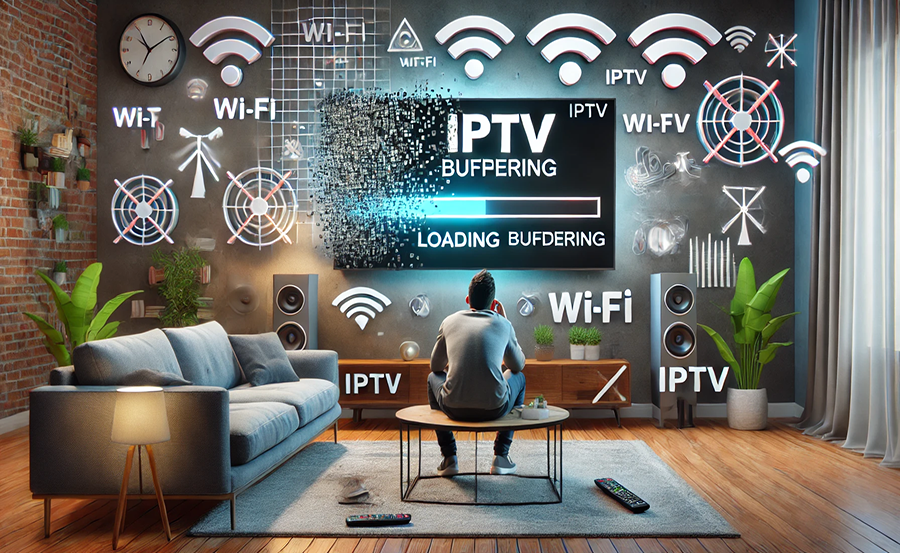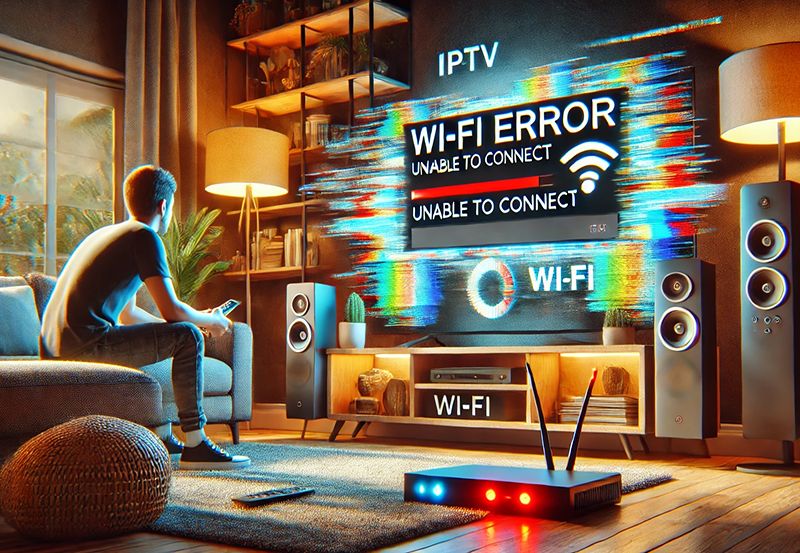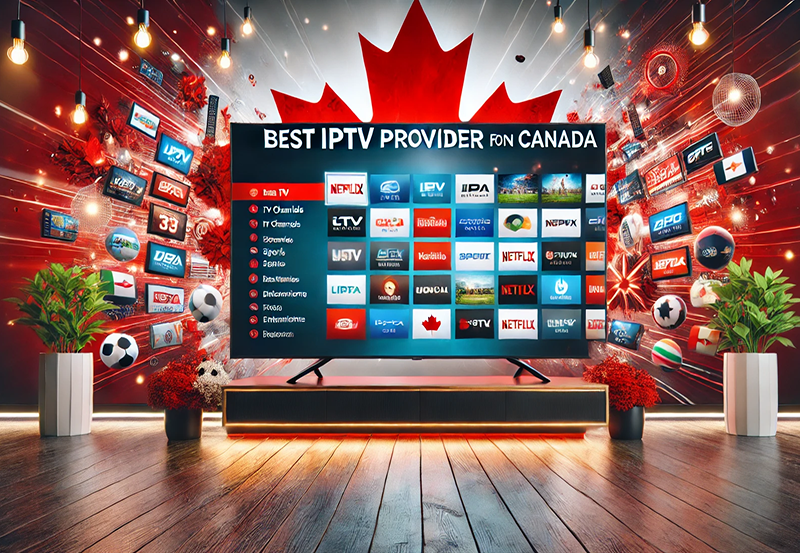Introduction: Navigating the Digital Streams
As technology continues to evolve at a rapid pace, the demand for uninterrupted streaming experiences has skyrocketed. For many, IPTV represents the future of television viewing, bringing a world of content directly to our screens with just a click. However, one common issue disrupts the idyllic promise of IPTV: latency, particularly on wireless connections. Fear not, as this guide aims to unravel the complexities of IPTV latency, providing you with actionable insights to optimize your viewing experience. Whether you’re a seasoned tech enthusiast or just beginning to explore the world of IPTV, by the end of this journey, your wireless woes will be a thing of the past. wants Buy 1 Year IPTV subscruption
In this comprehensive guide, we’ll explore various facets of reducing IPTV latency that are often overlooked by IPTV providers themselves. You’ll discover the best IPTV deals available today and learn how to unlock the ultimate IPTV experience right from the comfort of your home. Let’s dive in!
Understanding IPTV and Its Challenges
What is IPTV?
IPTV, or Internet Protocol Television, is a method of delivering television content over internet networks. Instead of traditional terrestrial, satellite, or cable formats, IPTV utilizes IP networks, making it accessible from any online connection. This convenience has led to a surge in its popularity as users want flexibility and choice when it comes to entertainment.
Yet, with the shift to internet-based TV, challenges arise, including buffering and latency, which can spoil the streaming experience. Addressing these challenges is crucial for IPTV to live up to its potential, offering a seamless stream of high-quality content ready at a moment’s notice.
The Intricacies of IPTV Providers
Choosing IPTV providers can be tricky, given the multitude of options. Each provider offers unique packages, known as Best IPTV deals, which vary in channels offered, streaming quality, and price. It’s essential that users do proper research into these providers, comparing their offerings and the technical support they provide.
A pivotal aspect often downplayed by providers is the recognition and management of latency issues. Proactive providers will offer solutions or infrastructure designed to minimize lag and enhance user experience.
The Causes of IPTV Latency
Network Bottlenecks and Their Impact
One of the main causes of IPTV latency is network congestion. When too many data packets travel through a network simultaneously, it causes a bottleneck, delaying data delivery. This delay often manifests as buffering during your favorite shows or sports events, breaking immersion and frustrating viewers.
Delayed packets can especially burden wireless networks, where interference from other devices and even walls can exacerbate latency. Understanding how these bottlenecks occur is the first step in effectively managing them.
Device Limitations and Compatibility
Besides network issues, the devices used to access IPTV also contribute to latency problems. Older hardware, such as outdated routers or streaming devices, may lack the necessary capabilities for seamless high-definition streaming.
Ensuring your equipment is up-to-date and compatible with modern standards set forth by IPTV providers can significantly reduce latency. Options for upgrading equipment might include purchasing newer routers that support the latest wireless standards or a device specifically optimized for IPTV use.
Best Practices for Reducing IPTV Latency
Optimizing Your Wi-Fi Setup
Optimizing your Wi-Fi setup is often the simplest way to reduce IPTV latency on wireless connections. Here are a few strategies:
- Position your router centrally in your home to minimize dead zones.
- Reduce interference by placing your router away from microwaves, cordless phones, and metal objects.
- Use wired connections where possible for devices that support them.
Following these guidelines can significantly diminish disruptions in your streaming experience.
Investing in Quality Equipment
As straightforward as it may sound, quality equipment is often the most effective solution. Low-end routers and old modems cannot keep up with high-speed internet demands, especially for data-heavy IPTV services.
Devices engineered with IPTV demands in mind can unlock the ultimate IPTV experience. Look for gear that supports the latest wireless standards and offers strong multi-band options for better distribution of data across channels.
Top Equipment Recommendations
Here’s a shortlist of highly recommended devices from tech enthusiasts:
- Tri-band routers, which provide separate channels for different devices.
- Wi-Fi mesh systems for larger homes to eliminate dead zones.
- Quality of Service (QoS) features that prioritize media streaming.
Advanced Techniques for Minimizing Latency
Implementing Quality of Service (QoS)
Quality of Service settings on your router manage and prioritize internet traffic effectively. By assigning higher priority to IPTV traffic, you ensure that buffering is minimized even during high-traffic periods.
Configuring these settings might require accessing your router’s admin panel, a task you can quickly engage with some guidance from your provider’s support center or online resources.
Using VPNs to Counteract ISP Throttling
In some instances, Internet Service Providers (ISPs) might throttle IPTV services, reducing bandwidth and increasing latency. Using a reputable VPN can mitigate this issue by encrypting your traffic and preventing your ISP from identifying and throttling your IPTV data.
It’s crucial to select a VPN that offers high-speed servers optimized for streaming to prevent adding further latency to your connection.
Engaging with Your IPTV Provider
Communication is Key
A strong line of communication between you and your IPTV provider can make a significant impact on your streaming experience. If you notice consistent issues despite employing the strategies mentioned, contacting your provider can lead to discovering if there are broader network issues, or it may uncover personalized solutions.
Some IPTV providers offer dedicated customer support geared towards troubleshooting client-specific issues, which is often included in the best IPTV deals. Leveraging this support can avoid much stress and hasten problem resolution.
Evaluating Service Quality
Regular evaluation of your service provider’s quality can also help maintain an optimal experience. Respected IPTV providers value customer feedback and will often strive to enhance service delivery based on user input.
Participating in user reviews or service evaluations often helps providers fine-tune their services, ultimately benefiting the entire user base.
A Creative Closing Touch
In a world where digital streaming is becoming the norm, addressing IPTV latency is not just about fixing a problem; it’s about enriching your everyday life. As you integrate the practices discussed here, you’ll find your viewing becoming smoother, your frustrations fewer, and your enjoyment maximized. Dive into the future of television with confidence, equipped with the knowledge to counter latency and, more importantly, enhance your entire IPTV experience.
Frequently Asked Questions

What is the best way to reduce IPTV buffering?
Optimizing your Wi-Fi setup and investing in quality streaming devices are the most effective strategies for minimizing IPTV buffering.
Can VPNs help improve my IPTV streaming experience?
Yes, using a VPN can prevent ISP throttling, which can improve your IPTV streaming experience by maintaining better internet speeds.
What should I consider when choosing an IPTV provider?
When selecting an IPTV provider, consider factors such as service availability, channel selection, streaming quality, and the level of customer support.
How can I determine if my equipment is outdated?
Consider checking the supported wireless standards of your devices. Older equipment that doesn’t support current standards, such as Wi-Fi 6, might need an upgrade.
Is investing in new equipment worth it for better IPTV performance?
Absolutely, investing in newer technology, such as advanced routers or streaming devices, can significantly enhance your IPTV performance.
Are there specific settings on my router that could help with IPTV?
Yes, enabling Quality of Service (QoS) settings can prioritize IPTV traffic, thus improving your streaming experience.
What role does my internet speed play in IPTV latency?
Your internet speed directly impacts IPTV latency; higher speeds generally reduce latency, ensuring a more fluid streaming experience.
Best Linux IPTV Player Showdown: Kodi vs The Rest




